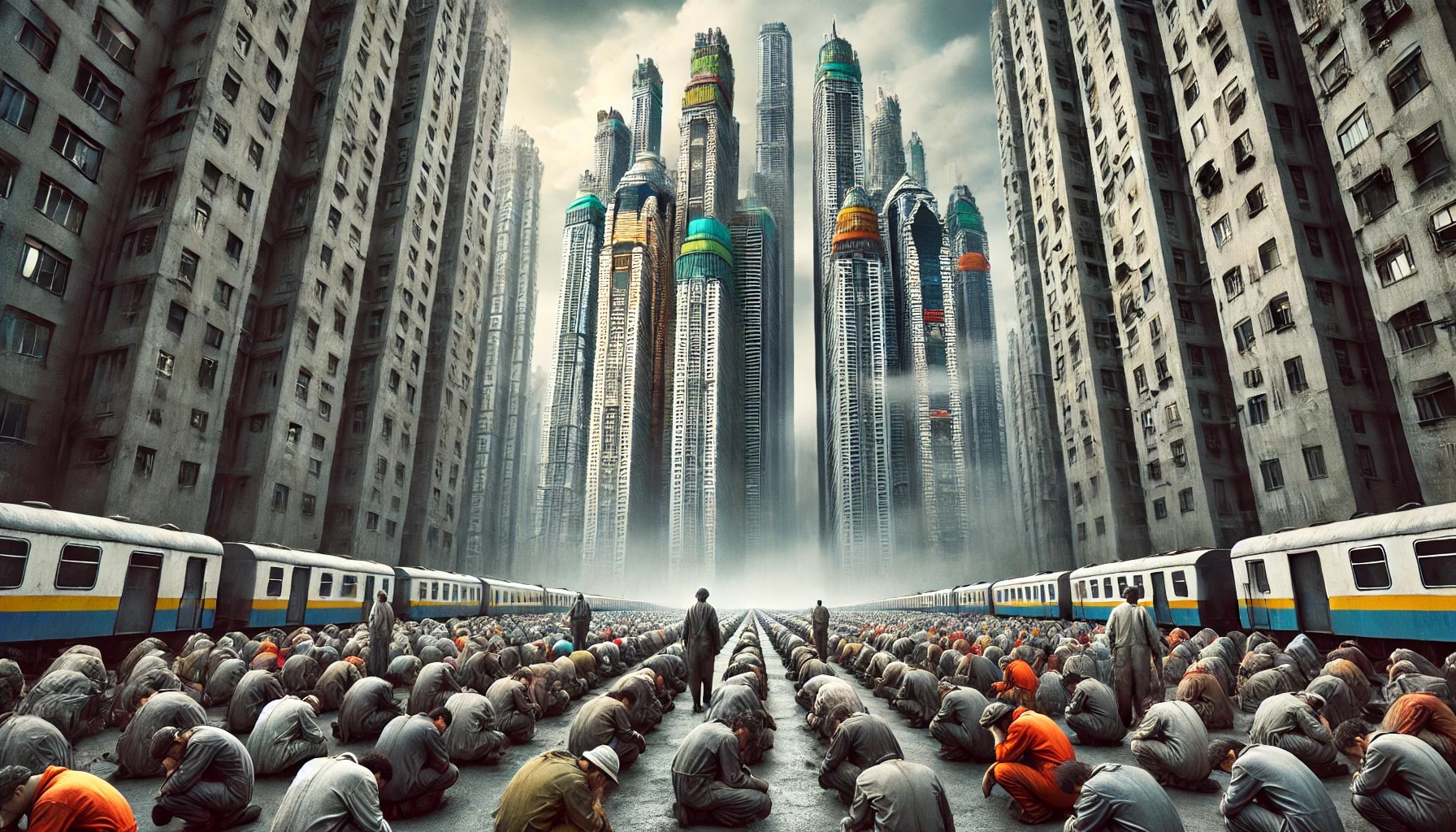Boredom and the Cage of Modern Society
“If you’re bored, you’re boring” — where does this idea come from?
This phrase has often been used to shame those who express dissatisfaction, suggesting that boredom is a personal failing rather than a systemic issue. But boredom isn’t merely a lack of imagination or creativity—it often reflects the constraints imposed by a world that denies people the freedom to truly live. To understand boredom as a societal phenomenon, we must trace its roots to the systems that dominate our economic and social lives.
The Roots of Economic Slavery
Modern boredom is not just a personal experience; it is a byproduct of economic servitude that arises from specific decisions made by states and central authorities. A pivotal moment in this history was the abandonment of the gold standard by many nations. This shift, designed to give governments unlimited control over their money supplies, unleashed a cascade of consequences.
When states severed the connection between currency and objective value, they gained the ability to inflate the money supply at will. While this might seem like a boon for growth, it has instead fostered greed and perpetuated inequality. In nearly all nations today, inflation is outpacing real economic growth, steadily eroding purchasing power for ordinary people while concentrating wealth at the top. This is not an uncontrolled phenomena; it is known, and it is intended. Over time, this system suppresses growth, destroys the middle class, and reshapes society into a near-feudal hierarchy: a tiny oligarchic elite atop a vast, struggling majority.
This imbalance turns millions into wage slaves, funneling their energy upward while being denied access to the fruits of their labor. The sense of helplessness and pointlessness many feel isn’t an accident—it’s a symptom of a system designed to extract rather than empower. Without meaningful access to your own time, wealth, or opportunity, boredom and numbness become inescapable.
Boredom: A Symptom of the System
The relentless pressure to work for survival leaves most people with little more than scraps of free time. True engagement—whether through learning, creativity, or leisure—requires mental space and emotional energy, both of which are in short supply for those caught in this cycle.
The psychological toll of this system is profound. It grinds down ambition, numbs hope, and distorts self-perception. What’s more, the illusion of freedom—that we should simply work harder, spend smarter, or be more disciplined—deepens the harm by shifting blame onto individuals rather than addressing the systemic theft of their energy and potential.
The Looming Dark Age
Unchecked, this trajectory will lead us into a new dark age. As inflation erodes wealth and opportunity, the middle class disappears, leaving behind a world divided into two castes: an elite few who wield enormous power and wealth, and an impoverished majority trapped in unending labor. These wage slaves are mandated to send their life force—physical, emotional, and intellectual—to the top of the pyramid, their own needs and potential disregarded.
This system does not simply fail individuals; it destroys the collective progress of humanity. It sacrifices the innovation, creativity, and cooperation that thrive when individuals are free to pursue their highest potential.
The Solution: Decentralized, Objective Value
The way forward lies in dismantling the mechanisms that enable this economic servitude. A key step is adopting a decentralized, objective standard to back our economic system—one immune to manipulation by central authorities. Unlike fiat currency, which can be inflated or hoarded at will, such a standard would empower individuals to store their energy and wealth securely and independently.
Technologies like blockchain and decentralized finance offer glimpses of this future, where no centralized entity has the power to steal or hoard wealth. By reclaiming control over value, we can keep that which is ours to keep, our own energy, our time, or life. We can regain the freedom to build, create, and thrive without the constant specter of economic exploitation.
From Surviving to Thriving
Boredom is not just a personal failing—it’s a societal indictment of a system that traps people in cycles of servitude. Its roots lie in decisions to untether currency from objective value, enabling the concentration of wealth and power while stripping away freedom and opportunity for the masses.
To overcome this, we must demand an economic system that prioritizes individual empowerment over centralized control. A decentralized, objective standard of value could break the cycle of economic slavery and usher in a world where abundance and progress benefit everyone—not just a select few.
It is only by addressing these roots that we can unlock humanity’s potential, turning the despair of boredom into the excitement of possibility.
